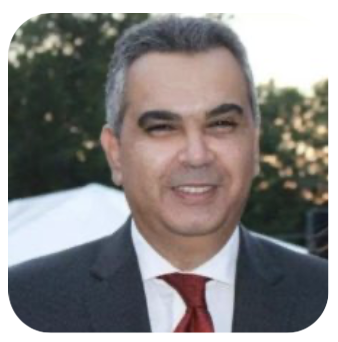Featured Speakers

Dame Karen Pierce (DCMG) is the UK Ambassador to the United States. Pierce previously served as the United Kingdom’s Permanent Representative to the United Nations, Director General for Political Affairs and Chief Operating Officer of the Foreign and Commonwealth Office, and Ambassador and Permanent Representative to the United Kingdom’s Mission to the United Nations, World Trade Organization and Other International Organizations. She has also served as Director of the South Asia and Afghanistan Department, the UK’s Special Representative for Afghanistan and Pakistan, and the United Kingdom’s Ambassador to Afghanistan.
To read Ambassador Karen Pierce’s full bio, click here.

Motaz Zahran is the Egyptian Ambassador to the United States. Motaz Zahran is a career diplomat who previously served as the Assistant Foreign Minister and Chief of Cabinet at the Egyptian Ministry of Foreign Affairs, served as the Egyptian Ambassador to Canada, and held numerous other positions within Egypt’s Ministry of Foreign Affairs including Deputy Assistant Foreign Minister and Advisor to the Minister for Foreign Affairs on the Middle East Peace Process, Palestine, Israel, and Egypt’s relations with the United States of America. Zahran has also worked at the Embassy of Egypt in Washington DC as a Political Counselor and Congressional Affairs Officer, and Chargé d’Affaires.
To read Ambassador Motaz Zahran’s full bio, click here.
Welcoming Remarks

Brian Finlay is the President and CEO of the Stimson Center. Under Brian Finlay’s tenure, Stimson has transformed its business model, launched pioneering new engagements across Asia, and led industry-defining programming on environmental security, renewable energy, and technology. The Center also opened its first overseas office in Europe. As a result, Stimson has tripled in size and continues to dramatically outperform similarly sized institutions in global rankings. Before joining Stimson, Finlay served as executive director of a Washington-based lobbying initiative focused on counterterrorism, as a researcher at Brookings, and as a program officer at the Century Foundation.
To read Brian Finlay’s full bio, click here.
Moderated By

Sally Yozell is a Senior Fellow and Director of the Stimson Center’s Environmental Security Program. At Stimson, Sally Yozell leads a team of experts who engage civil society, governments, and the private sector in addressing ocean, climate, and natural resource threats that have the potential to undermine national, regional, or global security. Prior to joining Stimson, Yozell served in various government roles, including as Senior Advisor to the Secretary of State, John Kerry, where she provided advice and technical expertise to advance U.S. policies on oceans, climate, and wildlife protection and as Director of Policy and Deputy Assistant Secretary for Oceans at the National Oceanic and Atmospheric Administration (NOAA).
To read Sally Yozell’s full bio, click here.
The world is facing a climate catastrophe. Global temperatures continue to rise and the impacts of climate change are being felt as never before. As the most recent IPCC report concludes, climate change is increasing the likelihood and severity of heatwaves, drought, flooding, and storms, degrading the security of people. Over 30 million people were displaced by climate-related events in 2020. Further, the climate crisis could push more than 130 million people into poverty by 2030 and reduce global economic output by as much as 14 percent through 2050. Faced with these impacts, nations, communities, and individuals are demanding immediate and systematic action.
The United Nations Framework Convention on Climate Change (UNFCCC) remains the primary international governance vehicle for delivering climate action. Through its centerpiece, the conference of parties (COP), the process seeks to bring all countries together to act to mitigate climate change through the reduction of greenhouse gas emissions, and to adapt to climate impacts already underway. However, despite progress being made, nations are currently not meeting goals set out in the Paris Agreement. As the world prepares to meet in Glasgow, Scotland for COP26 (November 2021), it is essential that nations strengthen their commitments, mobilize necessary finance, and meet their pledges to drive sustained action.

